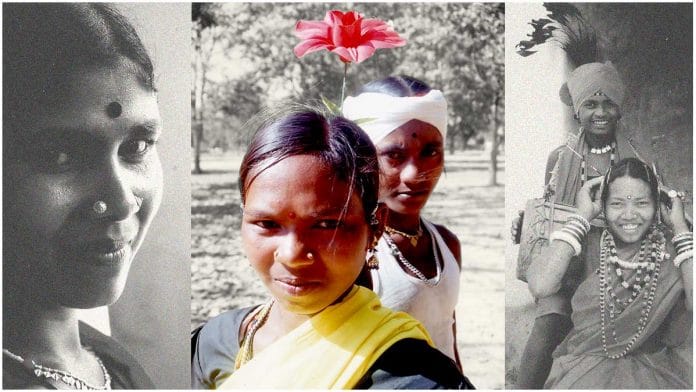New Delhi: Tribal India’s social and cultural habits are a good blueprint to follow to prevent the spread of Covid-19, a ground-level survey conducted in Jharkhand and Chhattisgarh has found.
The survey conducted by Patna-based NGO Society for Empowerment (SFE), which has been working on tribal issues for two decades, was led by its chairman Emeritus Professor S. Narayan, who is also a member of the National Commission for Denotified, Nomadic and Semi-Nomadic Tribes.
The report highlights that the use of traditional herbs and medicines, as well as the social distancing and hygiene norms rooted in tribal culture, have kept them safe from the coronavirus pandemic — until 31 May, no one in the tribal areas of Jharkhand or Bastar in Chhattisgarh had been affected by Covid-19.
“The cultural practices rather help in tackling the disease and can be useful in contracting pandemic like Corona (sic), as the basic maintenance of hygiene at home and workplace along with the social distancing is the key in fight,” the survey stated.
It also credited the washing of hands with hearth ashes, leaving shoes outside the door, groups sitting with sizeable distance between individuals and other habits of rural and tribal culture for preventing Covid-19 infections.
Also read: Bastar has remained Covid-free. That’s because social distancing is tribal norm, experts say
Herbs and medicines
The survey has outlined some of the traditional herbs and medicines used by the tribal people for boosting immunity.
“Chhapra, a paste made from red ants, a traditional delicacy in Bastar, increases the body’s immunity,” it says.
It also talks about the medicinal drink ‘kaadha’, whose preparation is similar to the process followed elsewhere in India’s heartland. “But the composition of the tribal kaadha is more enriched and also provides superior immunity,” the survey says, adding that the ingredients used are the bark of ‘Arjun’ tree, leaves of many plants including tulsi and guava, clove, ginger, giloy, cinnamon, cardamom, jaggery and lemongrass.
Most tribal families sip this kaadha like tea, and within two or three days, it “works in the body as preventive and curative medicine”.
The survey states that traditional herbal medicines are a great source of immunity for the tribals, as baigas (vaidyas) prescribe them to combat seasonal viral, bacterial, fungal infections and nutrient deficiencies.
“The acceptance of herbopathy and naturopathy is to be promoted outside the tribal world by incorporating the importance of nature and trees in the primary/middle/higher secondary education system,” the survey recommends.
“Promoting indigenous will make us more self-sufficient and self-reliant. A focussed approach in promoting traditional medicines like kaadha is the need of hour to fight against deadly pandemics.”
Also read: Why food & lifestyle could be the secret behind coronavirus ‘immunity’ of Bastar tribals
Tribal lifestyle
On how the tribals’ lifestyle is helping them stay safe from Covid-19, the survey adds: “They are living close to nature and they eat what they grow. They generally cook food themselves and eat simple food.
“The clothes are washed each day by ashes of the hearth. Most of the traditional dances and songs are played in such a way that social distance is maintained without any extra effort, it is followed traditionally in a routine matter.”
It goes on to describe the tribal practice of dhumkuria and pelerpa in Jharkhand, where children between the age of five and adolescence learn about their tradition and culture. “The thrust of tribal tradition and culture is on self-reliance,” it adds.
In Jharkhand, Covid-19 is being considered the anger of traditional deity Bonga. So, people are performing appeasing rituals individually and waiting for the lockdown to lift to perform rituals at village and tribe levels, the survey says.
“In times of Corona, people have made white circles at the hand pumps and solar pumps. They made masks with leaves,” it adds.
The survey concludes: “The cultural values, life style, world view and ethos did not allow them to have fear psychosis from Covid-19. However, counselling is required to sustain mental health of the tribals.”
The writer is CEO of Indraprastha Vishwa Samvad Kendra, an RSS affiliate, and author of two books on the RSS.
Also read: With digital tutorials, govt teaching tribals why social distancing, washing hands important







This article puts too much emphasis on the greatness of herbal medicine and Naturopathy techniques like Baba Ramdev and trying to project tribal society as this Utopian Society the article completely ignores the role played by Chattisgarh and Jharkhand governments both Non-BJP Governments in controlling the virus in their respective states among tribals. The writer of this piece is the CEO of Indraprastha Vishwa Samvad Kendra, an RSS affiliate, and author of two books on the RSS.